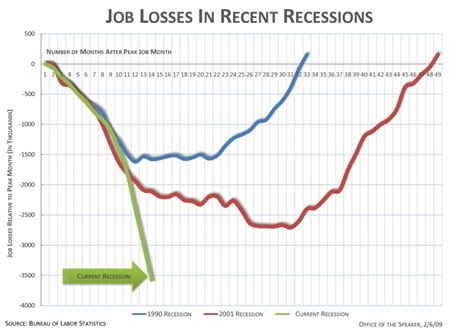Troubled Spokane parking garage project could come back to haunt Michael Ormsby
The office of U.S. Sen. Patty Murray, D-Wash., confirmed Friday that Ormsby’s name had been formally forwarded to the White House, where President Barack Obama would make the appointment.Ormsby's recommendation has drawn fire from watchdogs critical of his involvement in the River Park Square controversy, the Spokesman notes.
After review by the Office of White House Counsel, Ormsby would undergo an FBI background investigation and the nomination would be subject to confirmation by the Senate.
If confirmed, he would be the chief federal law enforcement officer for Eastern Washington – one of 90 such U.S. attorney positions that the president will fill.
Tim Connor, a former investigative journalist and longtime critic of the mall project, said Ormsby was a “central figure in the fraudulent RPS garage transaction” and was cited in an IRS report detailing tax-exempt securities violations.River Park Square, for those unfamiliar with Spokane, is a downtown mall that originally opened in 1999. Its development was highly controversial; legal wrangling over the project cost the City of Spokane millions of dollars.
The River Park Square fiasco is relevant to Ormsby's recommendation because he was the Bond Counsel for the Spokane Downtown Foundation. The foundation was established by Betsy Cowles to finance the expansion of the mall's parking garage. (Cowles' family, by the way, owns the Spokesman-Review, the Inland Empire Paper Company, and has a hand in much of the commerce that goes on in Spokane).
The Spokane Downtown Foundation decided to sell bonds, backed by parking revenues, to purchase the parking garage (but not the land it sits on) after the garage had been renovated and expanded. That's where Ormsby comes in:
His firm sent a letter to investors saying the bonds qualified for certain tax breaks when, in fact, they didn't.The December 2007 settlement came three and a half years after the Internal Revenue Service decided (PDF) that the foundation wasn't in compliance with section 501(c)(3) of U.S. tax law, which requires that tax-exempt organizes be organized and operated exclusively for charitable purposes:
The firm, then known as Preston Gates and Ellis, paid $1.4 million in penalties and taxes assessed by the Internal Revenue Service. The agency's Office of Professional Responsibility investigated whether Ormsby and another attorney performed due diligence. In a December 2007 settlement, described by the IRS as "groundbreaking," Ormsby admitted no wrongdoing but agreed that for the next 18 months he would not issue any opinions on certain financing issues without approval from the head of the firm's public finance group.
The Spokane Downtown Foundation is not a qualified 501(c)(3) organization and is not exempt from taxation under the Code. The bonds are not qualified private activity bonds under IRC §145. This is addressed solely because the organizing documents purport that this corporation is essentially described in 501(c)(3) of the Code. It is not. The Bonds are taxable private activity bonds.But that's not the end of the story. There's another twist, as explained by the last few paragraphs of the original Spokesman story I linked to:
After the garage was expanded but before it was purchased by the downtown foundation, a dispute arose between the Cowles development companies that owned the mall and one of its key tenants, AMC Theatres. The development companies are subsidiaries or affiliates of the parent company of The Spokesman-Review.By the way, the reason AMC got upset (which isn't cited in the excerpt above) is that they discovered that their patrons would not receive free parking.
When the theater chain threatened to pull out, Ormsby suggested the development companies lower the sale price of the garage. Instead, the developers offered to cover any lost revenue if the chain didn’t open, but only if the foundation and the public board that would operate the garage would keep that offer secret.
The foundation and the board agreed, AMC eventually reached an agreement with Cowles development companies and the garage was purchased for $26 million. Critics have said Ormsby should have told the foundation it should not buy the garage at a price they contend was inflated by an unusual form of appraisal and instead demanded the price come down or the deal be dropped.
So, to review, Betsy Cowles set up this foundation, ostensibly a charity, but really just a vehicle for selling tax-exempt bonds which were later found to be taxable. She and people who work for her then approached Michael Ormsby, asking him to be the Foundation's Bond Counsel. Ormsby agreed.
Ormsby wrote the letter which assured investors that the bonds would be qualified private activity bonds issued to finance a facility owned and operated by a 501(c)(3) organization. This letter was used to entice investors to buy the bonds. Later, when the whole scheme started falling apart, Ormsby failed to advise the Spokane Downtown Foundation that it needed to renegotiate the terms of the deal to buy the parking garage.
Ormsby and other players in the River Park Square fiasco have escaped potential prosecution, critics contend, because the current U.S. Attorney for Eastern Washington, James McDevitt (who was appointed by Dubya) was himself involved in the garage transaction. McDevitt did not recuse himself from the investigation until 2007, which apparently made it difficult for the Assistant U.S. Attorneys who were handling the case to get to the bottom of everything.
McDevitt has been in office since his confirmation in 2001.
Now our two United States Senators have recommended another lawyer who was involved in the River Park Square controversy and investigated by the Internal Revenue Service for allegedly failing to exercise due diligence. We have to ask: Is this the person we really want as U.S. Attorney for Eastern Washington?
We urge the Obama administration to carefully review the River Park Square fiasco and determine the extent of Michael Ormsby's involvement in that messy business as part of what we hope will be a thorough vetting process.


 Waikiki Beach and Diamond Head, Oahu
Waikiki Beach and Diamond Head, Oahu








